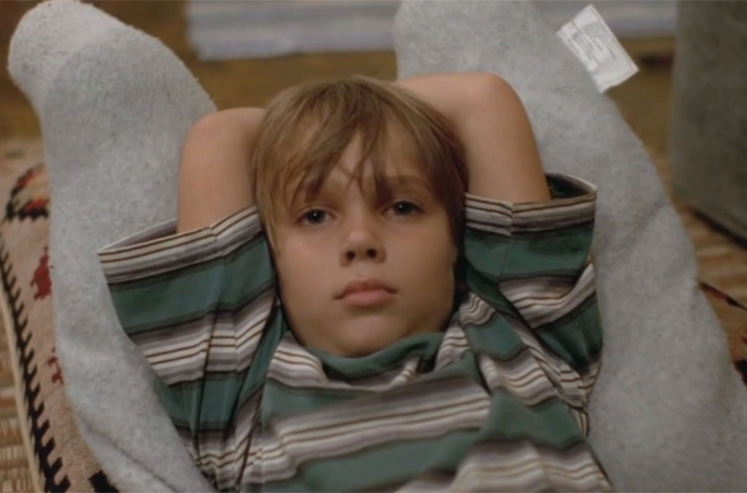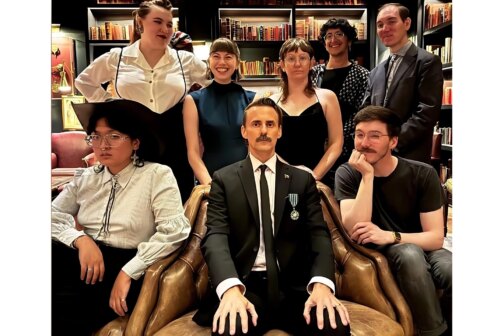Richard Linklater’s new film Boyhood originated with a simple idea that demanded an ambitious process: to make a film about growing up made during the length of time it takes for its actors to actually grow up. And so every summer for twelve years the filmmaker gathered his cast to shoot for a few days. The result is a remarkable cinematic experiment and one of the most unique films ever made. It’s a movie in which so much of the power is contained in the active forces of the cinematic process – time, aging, change, and maturation – driving the ordinary into the realm of art.
As a drama, Boyhood is deceivingly simple stuff. We follow six-year-old Mason (Ellar Coltrane) as he progresses from first through twelfth grade. Along the way, life flows by in a continual state of change. The first big change comes when his single mother Olivia (Patricia Arquette) moves the family to Houston so she can attend school. Then there are the string of new husbands, the arrival of step siblings, new beginnings at multiple new schools, which bring on new friends, first girlfriends, sexual adventures, discovered inspirations, artistic awakenings, and all the regular stuff of life. There are also overbearing stepfathers, alcoholism, and abuse. Throughout, the film focuses on the two central relationships in Mason Jr.’s life, with his mom and his biological father, Mason Sr. (Ethan Hawke), who left the young family and returns at the start of the film, a little more grown up and eager to embrace the fatherhood he ran away from. We also watch Olivia as she struggles through life as a single mother, tumbling through bad relationships, protecting her kids from her bad decisions, going back to school, and fighting to keep life from spiraling away from her.
In one of the most moving moments of an emotionally-dense movie, Olivia breaks down. “I thought there would be more than this,” she says as Mason is about to go off to college and she stares into the seeming abyss of an empty nest. It is a gut-wrenching scene, but it is a sentiment that seems to encapsulate Linklater’s vision. Boyhood’s strength lies in its eye for simple details, overlooked moments, and tiny memories rather than in grand pronouncements about the nature and meaning of life. It makes Boyhood a unique kind of film, and it feels like the masterwork of a Texan, stoner Proust. It has no equivalent in terms of concept, though it is reminiscent of a diversity of films, like the British documentary “Up Series,” François Truffaut’s Anoine Doniel cycle, and Marco Tullio Giordana’s The Best of Youth. And it works because Linklater has such a natural feel for his characters and a sensitivity for how they feel and experience all the sufferings and joys contained in his string of vignettes. When Boyhood does make statements about life, they’re filtered through the winking self-awareness of stoner talk. “Every moment is always now,” Ellar says at the film’s end, sitting out in Big Bend confronted with the enormity of geological time. It’s a joke, but it’s also all that really needs to be said after watching this movie, which renders the stuff of life compressed on celluloid like a wondrous sedimentary formation.






